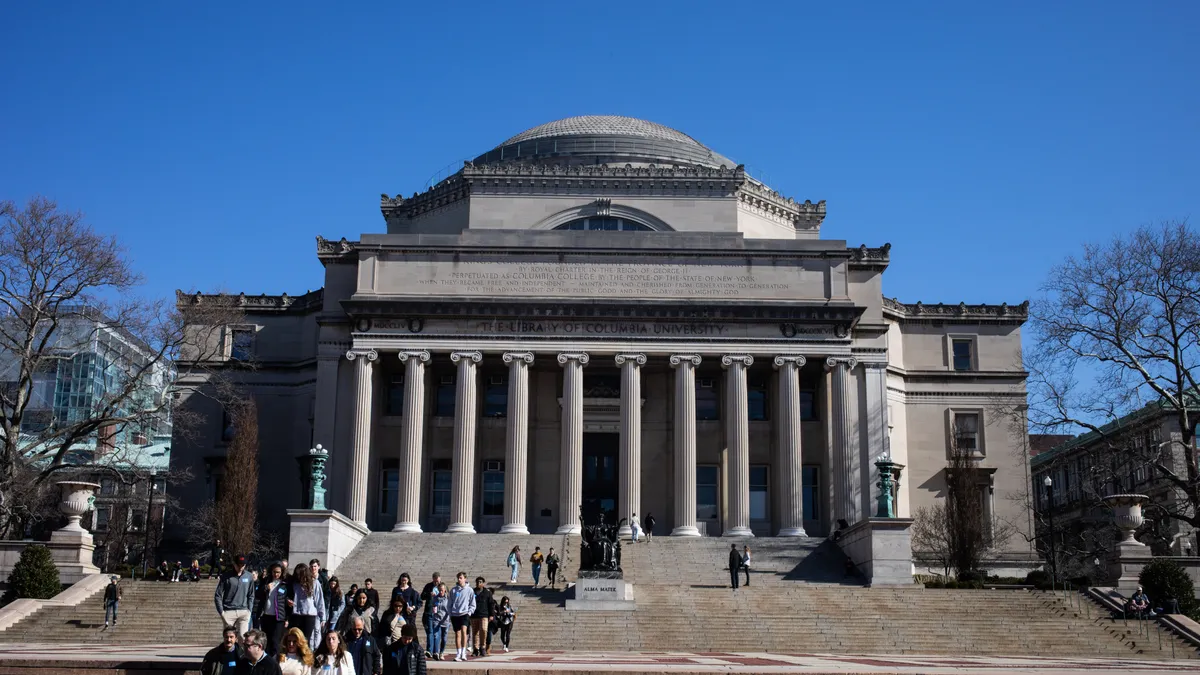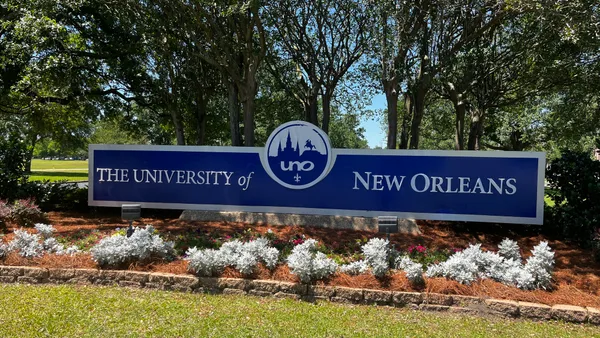Dive Brief:
- Columbia University will no longer require applicants to send SAT or ACT scores for undergraduate admissions, making it the first Ivy League institution to adopt test-optional policies indefinitely.
- The university said in a message posted Wednesday that it crafted its application to allow flexibility “for students to represent themselves fully and showcase their academic talents,” but that entrance exams are not mandated. Columbia dropped its testing requirement in 2020 and continually extended that waiver.
- Ivy League institutions don't directly affect most students in the higher education space, as only a fraction attend private nonprofit colleges compared to open-access institutions. However, Columbia's decision resonates across the sector, which often follows the lead of the most prestigious and visible colleges.
Dive Insight:
At one time, it would have been unheard of for students to abandon standardized test scores if they were angling to attend a four-year institution, especially if that college was competitive.
The vast majority of community colleges don’t ask for SAT or ACT results. But for many years, only a handful of competitive institutions were test-optional.
Then came the spread of COVID-19 in 2020, closing the doors of traditional exam sites like K-12 schools and advancing the test-optional movement at warp speed.
This delighted some testing critics who allege the SAT and ACT pose barriers to disadvantaged students, especially students of color, who can’t afford the same tutoring as their wealthier counterparts. Testing providers the College Board and ACT maintain instead that their products can link students to scholarship opportunities.
More than 1,800 colleges are not requiring admissions scores for fall 2023 applicants, according to FairTest, an organization advocating for limited use of standardized assessments.
That count includes institutions that historically have not mandated entrance exams.
Many colleges are still trying out pandemic-era test-optional admissions, which allow students to send their scores if they so choose, or test-free policies, in which colleges decline to review exams whatsoever.
Columbia first took up test-optional admissions in 2020, and then extended it through additional admissions cycles.
Officials stressed applicants who provide test scores will not be looked upon more favorably than those who do not. The permanent test-optional policy applies to Columbia College and The Fu Foundation School of Engineering and Applied Science.
“The submission of test results will be viewed only as one additional piece of information among the many factors that we will consider in our continued practice of a holistic and contextual review process,” the university said.
Bob Schaeffer, public education director of FairTest, applauded Columbia’s decision in an email.
“Columbia confirms that fair and accurate admissions decisions can be made without regard to standardized exam results,” Schaeffer said. “FairTest expects many more schools that eliminated the ACT/SAT during the COVID pandemic to lock their policies in for the long haul.”
Most of the other Ivy League institutions did not immediately respond to a request for comment Wednesday evening. Harvard University spokesperson Rachael Dane confirmed the institution is test-optional up through the class of 2030.















